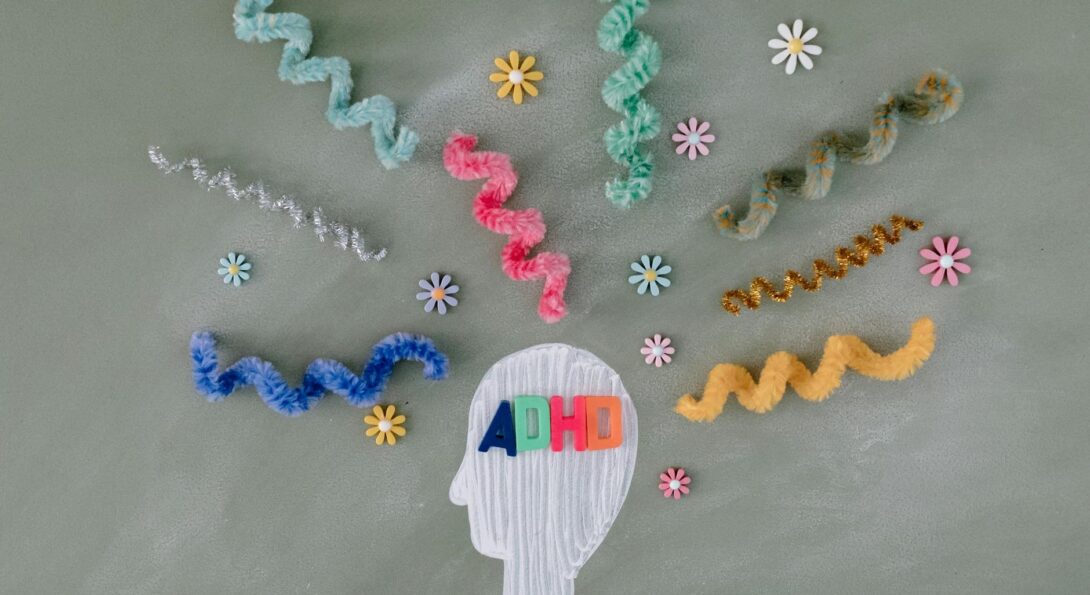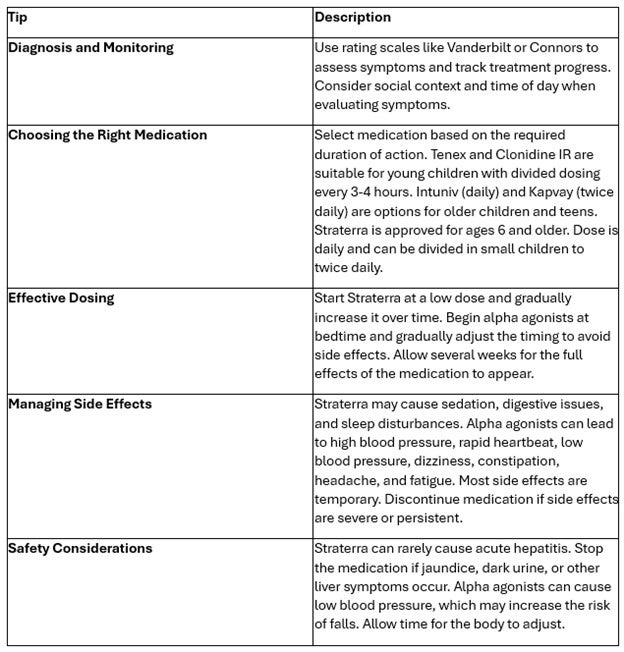Initiating ADHD Treatment in your Pediatric Patients

Introduction
ADHD is a common clinical topic that generates much discussion, controversy, and confusion. While specialists may be involved in determining drug suitability, primary care and general practitioners can play a crucial role in offering holistic support and helping families understand the diagnosis and treatment options, assisting them in making informed decisions that align with their individual needs (1).
It may be beneficial to learn the pharmacokinetics of the various stimulant XR formulations and add an IR dose to supplement the duration of effects as needed (2). Some providers may feel more comfortable exploring non-stimulant medications with their patients.
Graphic

Above are some helpful tips for starting non-stimulant ADHD treatment with your pediatric patients.
Text block
Evidence-based programs like Parent Management Training (PMT) can be a useful tool for caregivers. These programs assist parents in acquiring skills to manage their children’s disruptive behaviors, which may be associated with ADHD.
The Illinois DocAssist program offers consultation services for healthcare providers to assist with the diagnosis and treatment of ADHD in children and adolescents. This includes medication management and referrals to community resources, such as PMT services. For more information, you can visit our website or contact us directly at 866-986-ASST (2778).
Resources
Screeners for ADHD: The Conners Comprehensive Behavior Rating Scale is a questionnaire that focuses on behavioral, social, and academic issues in children aged 6-18 years old. The NICHQ Vanderbilt Assessment Scale is used to help in the diagnostic process of ADHD in children between ages of 6 and 12 (and is free).
Research shows that behavioral parent training (like PMT) can very effectively modify disruptive behavior in children in as few as eight sessions. Learn more here.
Illinois DocAssist offers online resources to help providers diagnose and treat ADHD.
The American Academy of Pediatrics (AAP) ADHD Toolkit and the American Academy of Child and Adolescent Psychiatry (AACAP) ADHD Resource Center are both great resources for providers.
References
References
1.Rashid A, Llanwarne N, Lehman R. Prescribing for ADHD in primary care. Br J Gen Pract. 2018 Apr;68(669):170-171. doi: 10.3399/bjgp18X695357. PMID: 29592923; PMCID: PMC5863652. https://www.ncbi.nlm.nih.gov/pmc/articles/PMC5863652/
2. Steingard R, Taskiran S, Connor DF, Markowitz JS, Stein MA. New Formulations of Stimulants: An Update for Clinicians. J Child Adolesc Psychopharmacol. 2019 Jun;29(5):324-339. doi: 10.1089/cap.2019.0043. Epub 2019 Apr 30. Erratum in: J Child Adolesc Psychopharmacol. 2020 Apr;30(3):202. doi: 10.1089/cap.2019.0043.correx. PMID: 31038360; PMCID: PMC7207053.